|
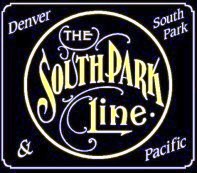  DENVER, SOUTH PARK and PACIFIC RAILROAD DENVER, SOUTH PARK and PACIFIC RAILROAD
DSP&P
Baggage Mail Express Cars #42, 43, and 44
DSP&P baggage-mail-express car #42, built by DSP&P in 1879,
originally had a single baggage door, centered on the car, end
platforms, and probably with the broken duckbill
contour similar to other cars built b
y the South Park’s Denver
Shops. Similar to baggage cars #40 and #41, it probably had four windows, two on
each side of the baggage door. One window location was modified to
create a mail door similar to the center door of the baggage cars.
In later years, under C&S ownership, windows were sheathed over, and later still the end
platforms were removed.
Pullman-built
baggage-mail-express cars #43 and #44, much more “modern” looking
than #42, arrived in early 1880. Where #42 had a single door on each
side with four windows, #43 and #44 had one door and a window on
each side for mail and a separate door for baggage. Even though all
three cars were “mail” cars, it is unlikely mail was sorted on these
cars initially, as it would be two years before the South Park had a
Railway Post Office contract.
These cars had end
platforms and roof profile was Pullman’s typical bullnose type. The
sheathing of the car appears to be the typical millwork of
later times, rather than any kind of Pullman's esoteric paneling.
Sources:
MidContinent Museum DSP&P Passenger Car
Pages
|
DSP&P |
U.P.
1885 |
DL&G
1889 |
C&S
1899 |
C&S
1906 |
|
#42 |
#1300 |
#1300 |
#113/#105 |
Baggage #4 |
|
#43 |
#1301 |
#1301 |
#114 |
Baggage Mail #13 |
|
#44 |
#1302 |
#1302 |
#115 |
Burned
Feb 1906 |
|
DSP&P. |
#43 |
#44 |
#42 |
|
Car Type |
Baggage-Mail-Express |
|
Build
Date |
June 1880
Oct 1879 |
|
Built by |
Pullmans
Palace Car Co. DSP&P Shop |
|
Length
Over End Sills |
42'-0"
40' 0" |
|
Length
Over Buffers |
44'-5"
(1916) |
Gone |
47' 4" |
|
Truck
Centers |
30'-4"
(1916) |
Gone |
29' 10" |
|
Truck
Wheelbase |
5'-0"
(1916) |
Gone |
5' 0" |
|
Width |
est.
8'-0" (1916) |
Gone |
8' 0" |
|
Height of
Body |
9'-4"
(1916) |
Gone |
9' 2" |
|
Body
Above Rails |
34"
(1916) |
Gone |
34" |
|
Clear
Opening of Doors |
3'-5 ˝" x
5'-6" (1916) |
Gone |
3' 4"x5' 6" |
|
Weight |
13 tons
(1912)
42,000 lbs. (1916) |
Gone |
16 tons
36,000 |
|
Wheel
Size |
30"
(1885)
26" (1916) |
Gone |
24" |
|
Heating |
Stove
(1885 both) Stove (1916 #13) |
|
Lighting |
Oil Lamps |
|
Interior
Finish |
Buff
walls, white ceiling (1916) |
Gone |
|
|
Platform
Roof |
Bullnose |
|
Termination Date |
Still
going |
13 Feb
1906 |
Jan 1939 |
 HISTORY HISTORY
Baggage-mail-express car #42 was out-shopped September 1879 by the
South Park’s Denver Shops. As with all the cars they produced, it
was likely assembled from parts created by one of the eastern
car builders. DSP&P #42 was
renumbered #1300 in 1885 and kept that number
under the DL&G, becoming C&S
baggage-mail #113. At some point prior to 1906, the C&S re-designated #113 to plain baggage car, with a single center baggage
door, and renumbered it to #105.
Similar
re-numberings haunted #43 and #44, except that they retained their baggage-mail-express designation to the end.
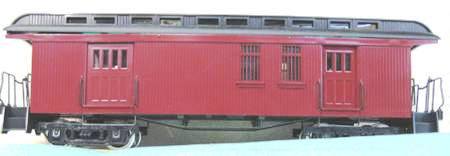
DSP&P #43 on the Rocky Mountain House, Leaverite and Northern. This is a HLW long
baggage-RPO car, based on the original Delton molds. Below, single
door DSP&P #42, an LGB model, renumbered.
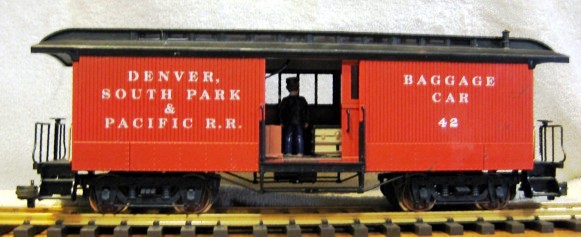
 PHOTO GALLERY PHOTO GALLERY
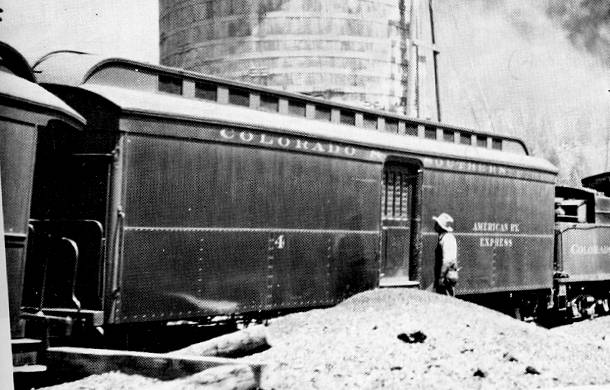
C&S #4 (ex DSP&P #42) in 1929 with widows sheathed over, metal
sheathing below the beltline, end platforms gone,
and end platforms gone.
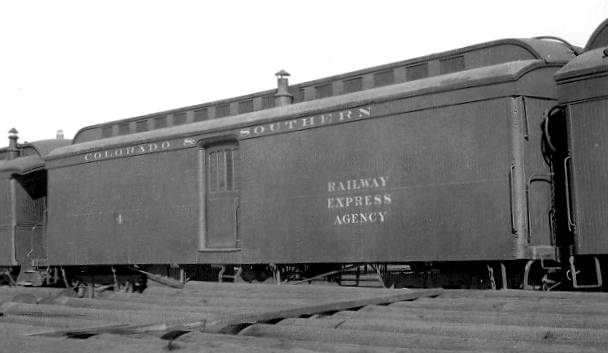
C&S #4 in 1939, looking very modern.

DL&G #1301 (ex DSP&P 43) left side.
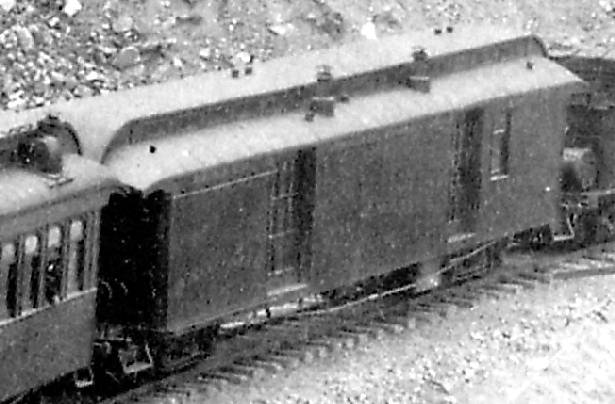
DSP&P #1301 right side, mail room windows were not in the same place
on both sides.
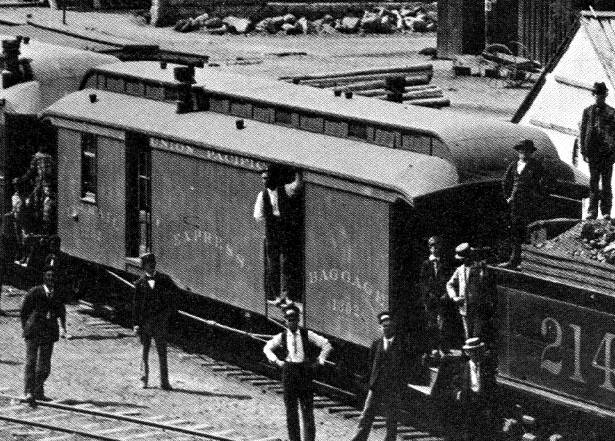
DL&G #1302 (DSP&P #44) in 1895.
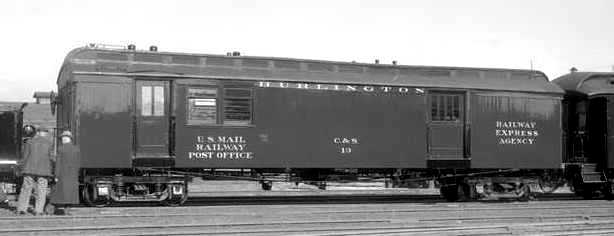
C&S #13 (DSP&P #43) at New York World's Fair in 1939. Mail door and
window swapped positions.
 FOLIOS and PLANS FOLIOS and PLANS
This plan by John
Maxwell shows baggage-mail #42 - 44 as C&S #10 - 12 with end
platforms still attached, as well as the floor plan as rebuilt
without end platforms.
DSP&P
Baggage-Mail #42 -- 44 later 1300 -- 1302
C&S Baggage Mail Express #110 -- 112 later 10 -- 12
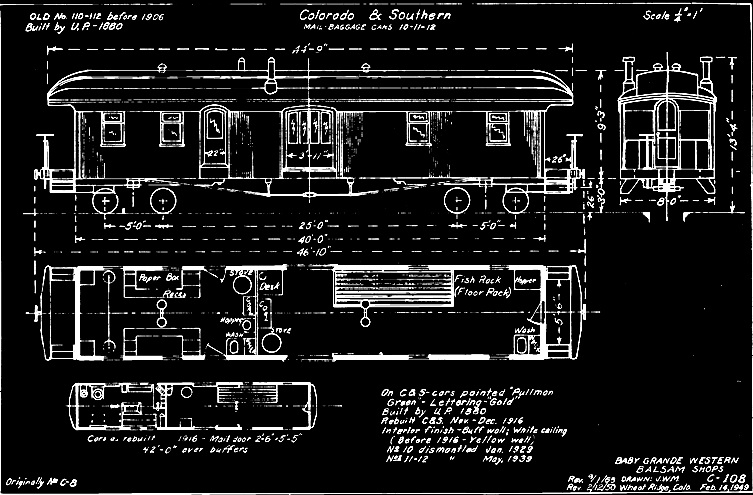
These folios of the DSP&P baggage-RPO cars show their configuration after 1906. You
will need to add end platforms and end doors to
visualize their appearance in the DSP&P era of the 1880's.
DSP&P #42 -- C&S #4
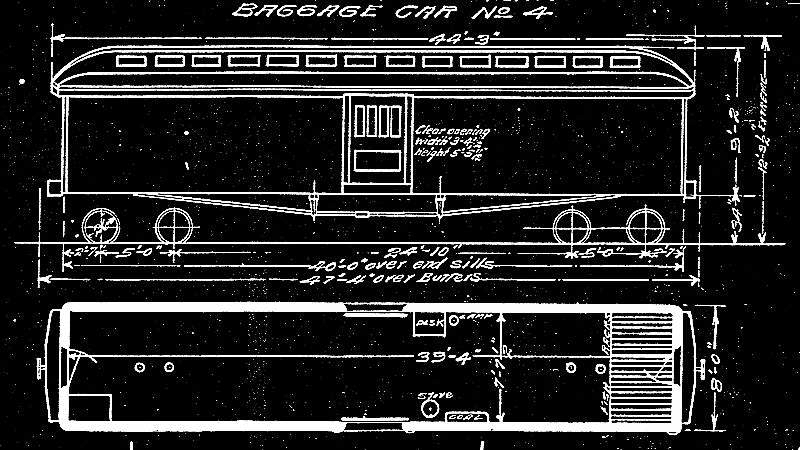
DSP&P #43 and 44 -- C&S #13
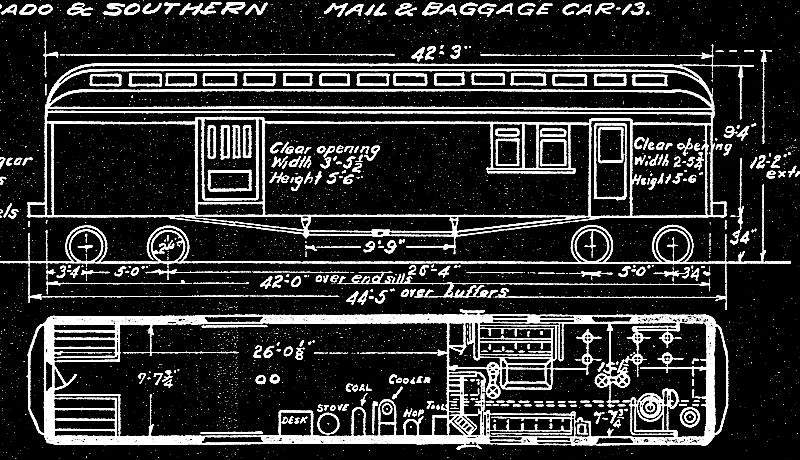
|











